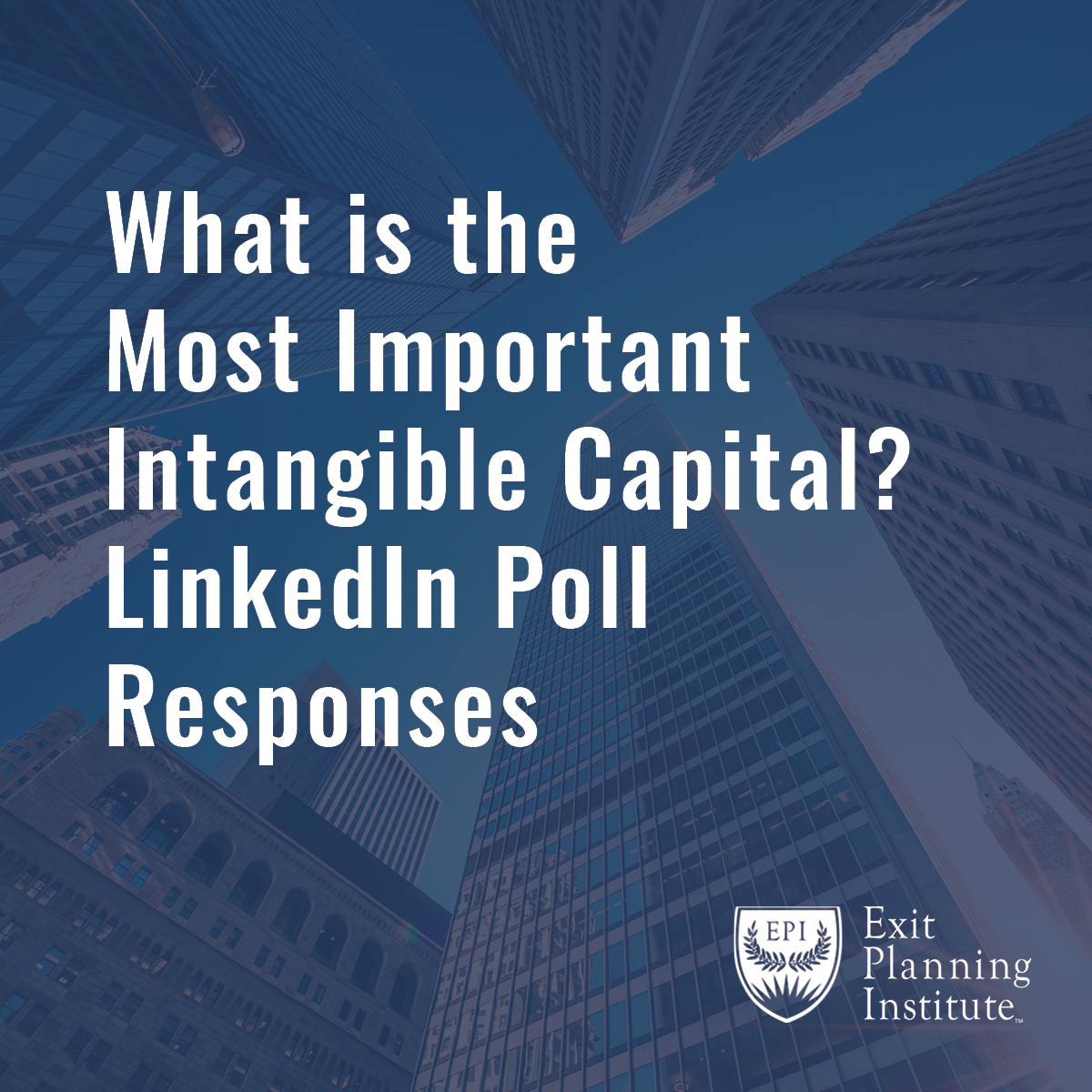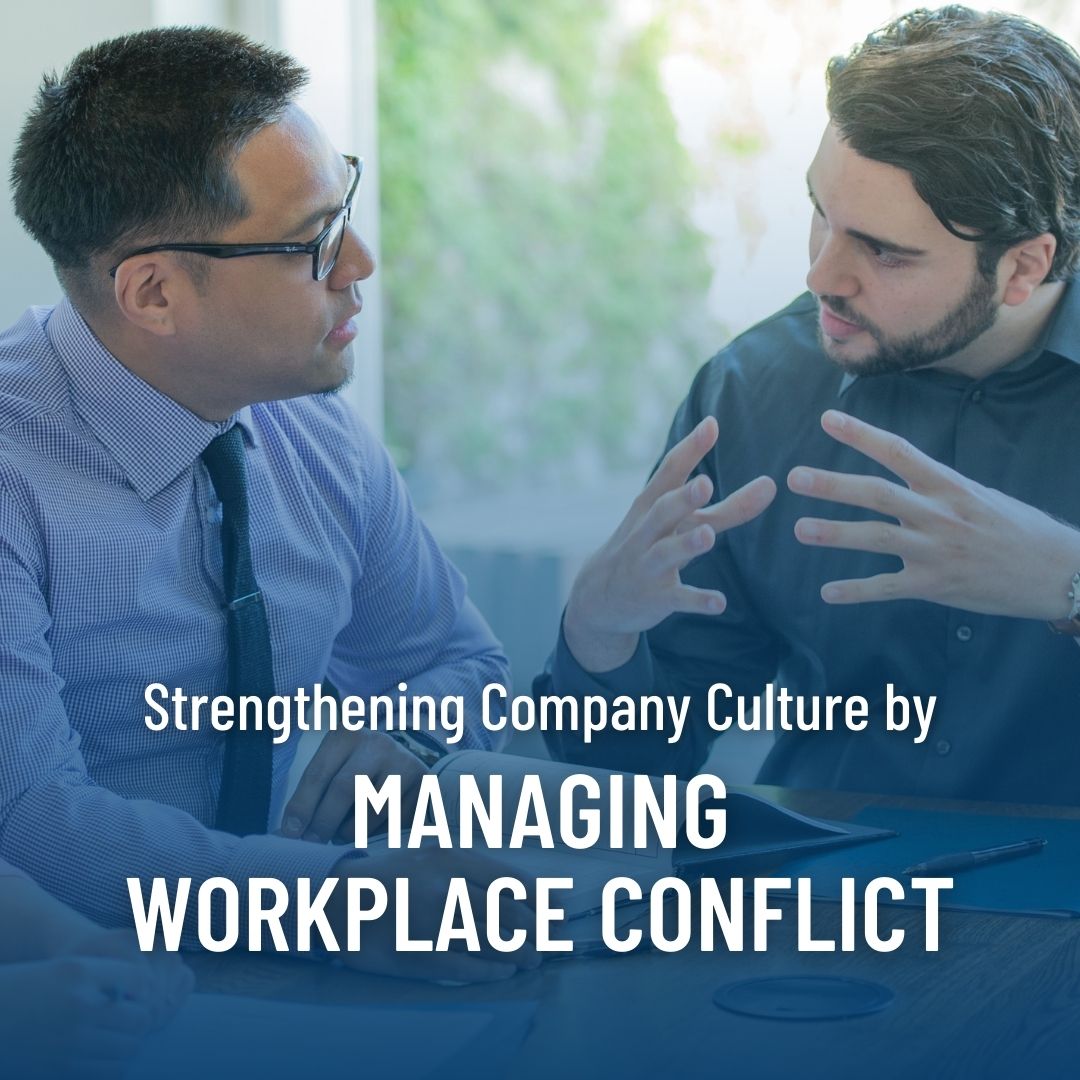
THE EXIT PLANNING BLOG
Keep up-to-date with exit planning, succession planning, industry trends, unique specialty insights, and useful content for professional advisors and business owners.
Share this
The Importance of Strong Structural Capital: While Building a Gingerbread House
by Colleen Kowalski on December 20, 2021

The sweet smell of molasses combined with the warm and spicy aroma of ginger, cinnamon, and nutmeg elicit memories of baking soft and delicious gingerbread. However, if you are not a great baker, the smell of burning dough and the sound of a smoke alarm might follow.
The most robust of all intangible capitals is Structural Capital. It encompasses everything that makes your company work efficiently. The process, documentation, training programs, technology, tools, equipment, and real estate. Exit Planning Institute President, Scott Snider says, “Bottom line, I don’t think there is a more important intangible capital than the processes that make your business.”
“Where Is The Recipe?”

Picture this: a mother and her four young daughters are mixing flour, butter, and spices into a large bowl. They seem to be having a great time, but the mother’s patience is wearing thin. She is the only one that actually knows how to make gingerbread. The mom, like her mom before her, has their family’s secret gingerbread recipe ingrained in her mind.
This would be fine if she were the only one in the kitchen, but that is not the case. The girls try to help their mom, but without any recipe to reference, they toss ingredients haphazardly into a bowl. The youngest daughter is dancing around the kitchen, flinging a flour-covered whisk at the oldest. The other two girls just threw two uncracked eggs into the bowl after their mother said to “add two eggs.”
The mom realizes the error of her ways and frantically looks for a pen and paper to document the recipe. She does not want to experience this mayhem next December.
While this story probably brings back memories of your own family around the holidays, it also encapsulates an issue many businesses face, especially owner-dependent businesses. The lack of documented processes and Standard Operating Procedures (SOPs) will negatively impact business value and the likelihood of the business selling when put on the market.
According to Walking to Destiny by EPI CEO, Christopher Snider, “Structural capital captures the knowledge assets within your company, converting that mental process into company property and, therefore making it transferable.”
“There Are Too Many Cooks in The Kitchen!”

We join the mom and her four girls in the kitchen again. What could have easily been a one-person job, if managed effectively, has gone completely off the rails. The mom is displeased. She is the only one who knows how to make gingerbread and did not teach the girls the process to replicate. There are too many cooks in the kitchen, and absolutely none of them are trained for this.
Imagine this happening in your business. Think of the ensuing chaos if your workers were not given detailed job descriptions, provided the correct materials, or defined job duties. The people in your business, although mainly associated with your organization’s Human Capital, represent a part of your structural capital as well. If only one person understands a specific process, the remaining members have to look to them for support.
When a business has strong structural capital, the success of the company does not depend on any individual person’s ability to perform a specific task. Christopher Snider writes in Walking to Destiny, “Your knowledge needs to be documented and transferable, such that someone else can learn from you and apply it. Making this knowledge company property ensures that when your talent walks out the door at night, the knowledge doesn’t walk out the door with them.”
“How Do I Put This Together Without it Falling Apart?”

Somehow, the four little girls and their mom made the gingerbread without burning the kitchen down. They are ready to assemble their gingerbread house. The mom prepares bowls filled with chocolate chips, pretzels, gummy bears, and shredded coconut to decorate the house. She then begins mixing a bowl of royal icing to secure the gingerbread walls together.
The youngest girl, curious as ever, grabs the cookie walls and asks how in the world they will stand without falling over. The mom responds, “We will use this as glue to stick the pieces together,” referencing the powdered sugar and egg mixture she was stirring. However, the child heard “glue” and immediately grabbed her bottle of craft glue. She set off towards the gingerbread walls and began gluing them together. While it got the job done, this glue was clearly not the best choice. What was once going to be an edible house made of dough, is now a glue-covered decoration.
Having the proper tools, equipment, technical resources, and intellectual property in a business is paramount to its success. Without strong structural capital, your business will be unable to function in a repeatable and scalable way. The stronger your organization’s structural capital, the more valuable your business.
When the main processes, resources, and infrastructure are well documented and organized, the business value increases as a result. The physical components of your structural capital such as your real estate, equipment, and technology, are some of the most important factors for potential buyers looking to purchase your business.
Your business is much more complex than building a gingerbread house. However, without documented systems, the right people in place, and proper equipment, you might see your business crumble like a cookie. A strong structure is everything for a gingerbread house and one of the most important intangible capitals in your business.
Learn More About the Four Intangible Capitals
Learn more about Structural Capital in our 5-4-3-2-1: Five Things Every Business Owner Must Know About Exit Planning Whitepaper.
Request the Whitepaper!Share this
- Blog (548)
- CEPA (431)
- exit planning (249)
- CEPA community (188)
- Business Owner (175)
- Exit Planning Summit (99)
- EPI Chapter Network (89)
- Value Acceleration Methodology (81)
- Exit Planning Partner Network (76)
- EPI Announcement (50)
- Content (48)
- Webinars (37)
- Excellence in Exit Planning Awards (34)
- Marketing (30)
- 2024 Exit Planning Summit (28)
- 5 Stages of Value Maturity (26)
- Books (24)
- EPI Academy (24)
- EPI Team (22)
- Exit Planning Teams (22)
- Leadership (21)
- 2023 Exit Planning Summit (20)
- family business (20)
- women in business (19)
- Intangible Capital (18)
- Exit Options (17)
- Black Friday (16)
- CPA (15)
- Walking to Destiny (15)
- Chapters (14)
- State of Owner Readiness (14)
- charitable intent (13)
- Chris Snider (12)
- National Accounts (12)
- Small business (12)
- personal planning (12)
- Financial Advisors (11)
- Season of Deals (9)
- 5 Ds (8)
- About us (8)
- Podcast (8)
- Scott Snider (8)
- Insiders Bash (7)
- Christmas (6)
- Exit Planning Content Library (6)
- Case Studies (5)
- Owner Roundtables (5)
- Three Legs of the Stool (5)
- Value Advisors (5)
- financial planning (5)
- Awards (4)
- Circle of Excellence (4)
- EPI Thought Leadership Council (4)
- Exit & Succession (4)
- Five Ds (4)
- executive training (4)
- DriveValue (3)
- Owners Forum (3)
- author (3)
- forbes (3)
- Exit Is Now Podcast (2)
- Peter Christman (2)
- Veteran (2)
- Whitepapers (2)
- Annual Exit (1)
- Business Owners Forum (1)
- SOOR (1)
- business consultants (1)






